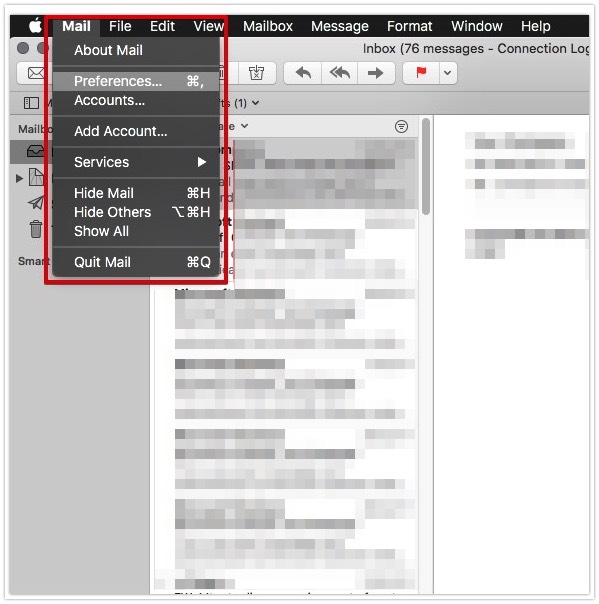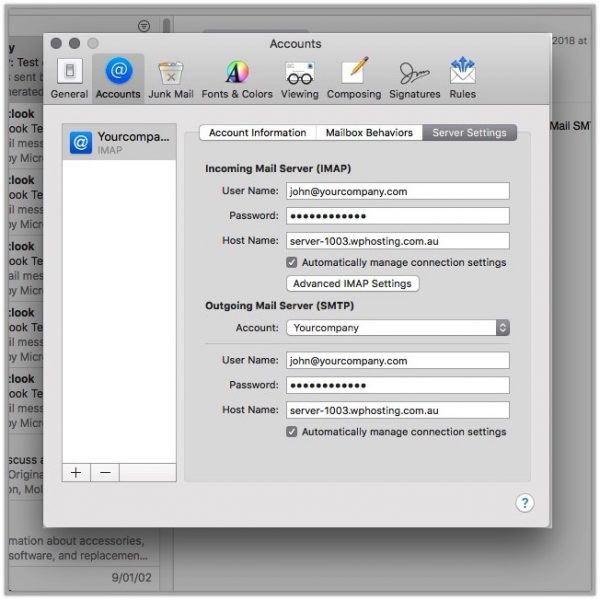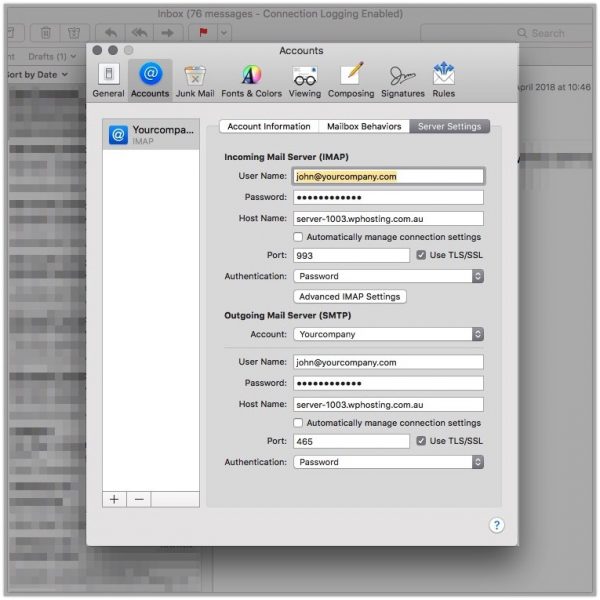How to configure email on Mac Mail
Stephen
Last Update 4 years ago
This article will describe the setup process for when you wish to configure the built-in mail client ‘Mail’ on Mac OS with a new email account. This email you will have already created – if not then check out this article first to complete that step.
Pre-Setup
Before you proceed any further ensure you have the following details available:
- Username (the email address you wish to configure)
- Password (you will need to set this in cPanel)
Additionally if using manual setup:
- Mail Server (used for both incoming and outgoing mail)
- Port selection (dependent on whether you’re configuring with or without SSL)
If you are missing any of the information listed above, resolve that first prior to continuing any further.
Without the correct password you won’t get very far, so to ensure you’re on the right track navigate to the webmail for the account you’re configuring.
If the new email account is john@example.com then visit http://example.com/webmail to bring up the server’s web-mail interface and test your password there. If the password is incorrect then reset it through cPanel, and we have a guide for that here. You must supplement example.com for your domain name for this to work.
Automated Configuration
Manual Configuration
Testing
Once you’ve finished configuring the mailbox, try sending to an external address (such as Gmail or Hotmail) to confirm you can send mail, then reply back to that email to test inbound mail. If both work correctly then you’ve followed the steps correctly and mail is working as expected.
Troubleshooting
To review your connection settings and/or modify the settings if required, follow these steps:
1. With the Mail application open, from the menu bar choose Mail then Preferences….

2. Next select Accounts from the preferences ribbon, and select the mail account you wish to modify. With that selected, select the tab Server Settings which is usually the 3rd, after Account Information and Mailbox Behaviours.

3. This screen will show you your current server settings, including the Host Name, Port and Authentication method (should always be ‘Password’). If you have Automatically manage connection settings ticked, be sure to un-tick this option and choose your port numbers according to the values below.
IMAP (SSL): 993
IMAP (non-SSL): 143
POP (SSL): 995
POP (non-SSL): 110
4. Your settings should ideally look like this (albeit with your own Host Name and user credentials):


